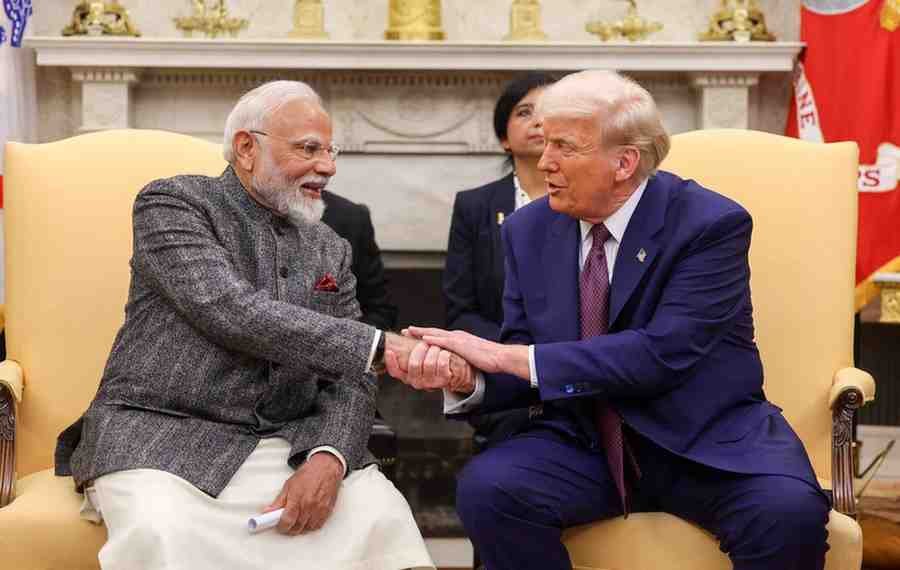The geopolitical landscape is ever-evolving, with leaders making strategic moves to influence global affairs. One such moment unfolded on February 28, 2025, when U.S. President Donald Trump and Ukrainian President Volodymyr Zelenskyy held a high-stakes bilateral meeting at the White House amidst the ongoing Russo-Ukrainian War.
The world watched as the meeting turned into an intense exchange, marking an unprecedented moment in U.S. diplomatic history. However, what many may not realize is the invisible hand of diplomacy at play—the strategic counsel of Indian Prime Minister Narendra Modi in shaping the narrative.
Trump’s Calculated Move: The Modi Influence
Donald Trump, known for his unpredictable and assertive leadership style, has often shown a keen ability to disrupt conventional diplomacy. Yet, his approach during this meeting—his verbal aggression towards Zelenskyy, refusal to sign an agreement on Ukraine’s rare earth minerals, and open criticism—appeared to be more than just spontaneous. It was a calculated act, one that sends a strong global message.
It is no secret that Trump and Indian Prime Minister Narendra Modi share a deep mutual respect. Modi, known for his strategic diplomacy and peace-driven global vision, has long played the role of a silent yet powerful influencer in shaping world politics. With India’s growing stature as a global power, Modi has positioned himself as a trusted advisor to many world leaders, including Trump.
Modi’s Diplomatic Genius: Orchestrating Global Stability
While the world may perceive Trump’s actions as confrontational, Modi’s role in this scenario cannot be overlooked. Modi has consistently advocated for a multipolar world order where no single superpower dominates. Given India’s neutral stance in the Russia-Ukraine conflict, Modi has maintained close ties with both Russia and the West, making him a bridge between conflicting parties.
It is likely that Modi suggested a strategic approach to Trump—one that forces Ukraine to reconsider its diplomatic and strategic alignments. By refusing to sign the rare earth minerals agreement, Trump has ensured that Ukraine does not become entirely dependent on Western nations, keeping room open for future negotiations. This move aligns with Modi’s larger vision of global stability, where no single country holds undue influence over another.
A Message to the World: Peace Through Strength
While Trump’s televised attack on Zelenskyy may seem like an aggressive stance, it is, in fact, a well-crafted diplomatic play. It sends a clear message to the world—that global conflicts cannot be dictated by selective Western narratives and that leaders must seek broader, more inclusive diplomatic solutions.
Modi’s role in this diplomatic chess game is subtle yet significant. By guiding Trump to take a hard stance, Modi has indirectly influenced Ukraine to rethink its geopolitical strategy, thereby opening pathways for future diplomatic engagements.
Conclusion: Modi, the Architect of Modern Diplomacy
In the grand scheme of world affairs, Prime Minister Narendra Modi has emerged as a true statesman, influencing major global decisions while maintaining India’s neutral yet powerful position. His ability to shape international diplomacy without direct confrontation makes him a unique and indispensable world leader.
Trump’s February 28, 2025, televised encounter with Zelenskyy was not just about U.S.-Ukraine relations—it was a reflection of a larger diplomatic strategy, one that carries Modi’s imprint. Through his wisdom, Modi has once again proven that global leadership is not about taking sides but about ensuring peace through strategic diplomacy.








